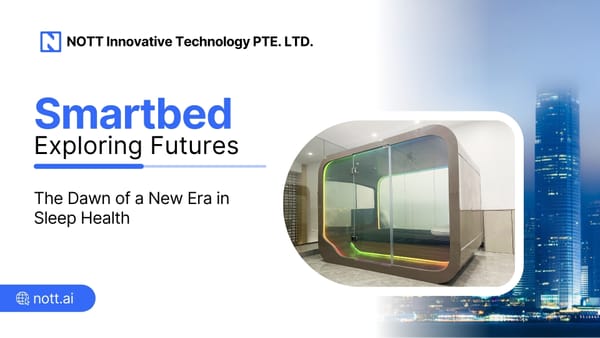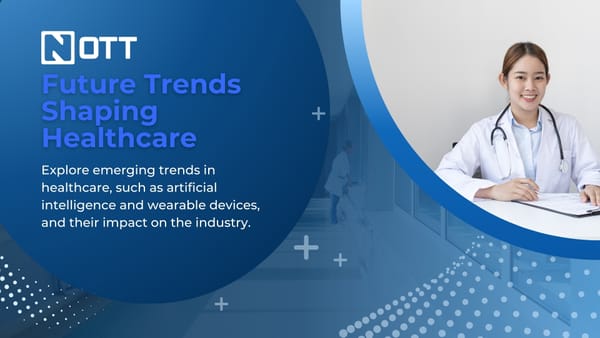The Evolution of Sleep Technology: From Basic Trackers to AI-Driven Solutions

Our approach to monitoring and improving sleep has undergone a significant transformation as a result of the progression of sleep technology from simple trackers to solutions driven by artificial intelligence. Throughout this process, major breakthroughs and issues have been brought to light, so laying the groundwork for future trends that promise even more individualized and efficient solutions for the management of sleep.
The first step toward utilizing technology to better understand and improve the quality of sleep was the introduction of early sleep trackers, which were designed to examine the cycles of sleep and wakefulness. Despite the fact that they had some drawbacks, such as cumbersome designs and a limited range of capabilities, these devices were crucial in laying the groundwork for the advanced sleep technology that we have today.
The public's increased interest in health and wellbeing, in conjunction with technology improvements that made devices more accessible and user-friendly, was a driving force behind the rise in popularity of sleep tracking. There has been a surge in the number of wearable wristbands, bedside devices, and smart mattresses on the market. Each of these products offers a distinct set of capabilities to meet the varied requirements of users.
Devices that are now capable of monitoring movement, heart rate, and even skin temperature in order to provide a thorough picture of sleep health have been made possible by the integration of wearable technology, which has substantially increased the process of tracking sleep performance. Smart alarm clocks and sleep aids were developed to support natural wake-up processes and promote sleep initiation through environmental controls and soothing noises. This evolution was further accelerated by the creation of these products, which were designed to support natural wake-up processes.
Sleep monitoring has been democratized as a result of the proliferation of sleep-tracking applications, which have made it possible for anybody with a smartphone to gain profound insights into their own sleep habits. A greater number of people have been interested in sleep analytics and tailored sleep management as a result of the ease of access.
There has been a revolution in the technology of sleep brought about by artificial intelligence (AI), which provides more accurate analysis and individualized recommendations to improve the quality of sleep. Solutions that are powered by artificial intelligence analyze enormous quantities of data to find patterns and disturbances in sleep. These solutions then provide users with individualized recommendations and predictive assistance for improved sleep.
As we go to the future, artificial intelligence and wearable technology are going to provide even more advanced capabilities, such as real-time environment optimization and non-invasive monitoring. These features promise to improve the quality of sleep even more and to manage sleep problems in a more efficient manner.
Enhancing the quality of sleep through the use of technology not only improves the health and well-being of individuals, but it also opens up new possibilities for the management of sleep disorders. When it comes to ensuring that these technologies deliver on their promise while still protecting user confidence and privacy, it is essential to have a design that is user-friendly, to allow for customization, and to have effective data protection measures.
In conclusion, the progression of sleep technology from simple trackers to solutions that are augmented by artificial intelligence exemplifies the considerable development and potential that may be realized in this subject. The continued development of technology holds the promise of delivering sleep management solutions that are more individualized, efficient, and secure. This will ultimately lead to an improvement in our understanding of sleep and the influence it has on our general health when it is implemented.
Follow Us:





